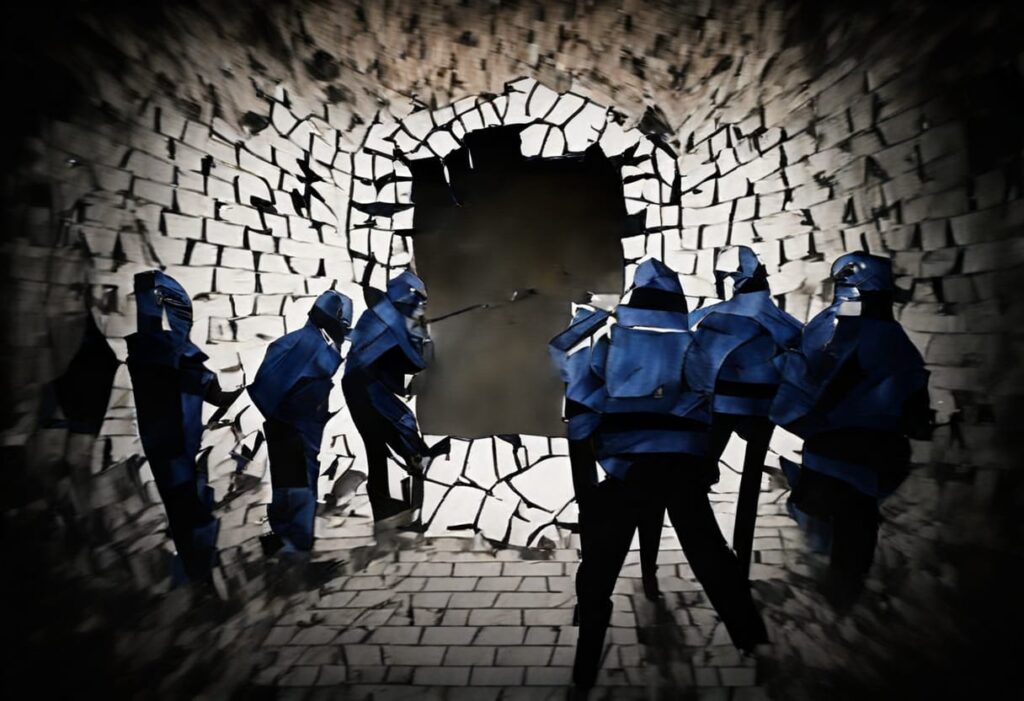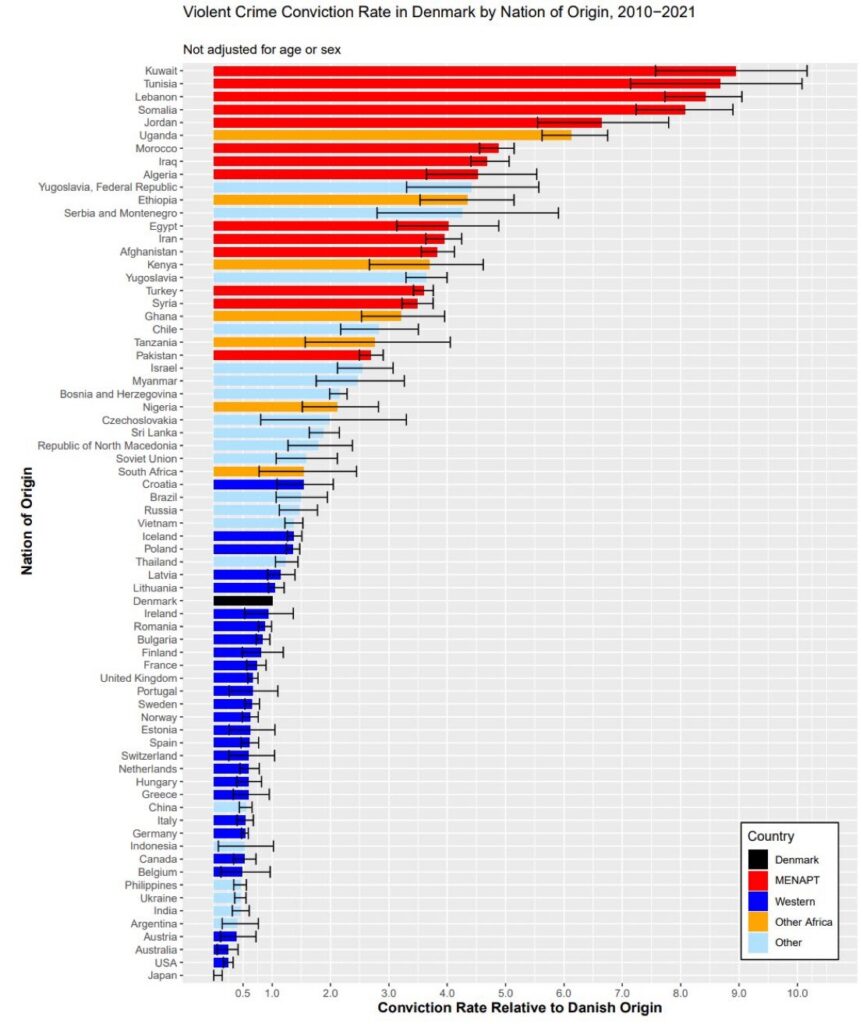
A lot of energy is currently being directed into solving the gang problem. I grew up in a family full of gang members, so I have some idea. My father was one, my uncle was one, and my brother and one cousin grew up to be one. I went on to get a master’s degree in psychology, so have some special insight into the workings of gang member psychology. This essay shares some of my relevant observations.
The first point worth noting is that the mainstream narrative around the psychology of gang members is grossly inaccurate. This is because the mainstream narrative has been determined and advanced by middle-class people with no experience of gang culture.
Thus, there any many common misconceptions. In reality, people don’t join gangs for economic reasons. If they did, then wealthy America would have far fewer gangs than India and China, when the reverse is actually true. Neither do they join gangs because of colonisation. If they did, there would be no such things as white gangs. Nor would there be Tongan gang members, as Tongans were never colonised. Neither do they join gangs because of a lack of educational opportunities. The narrative that poverty, colonisation or lack of opportunities causes gang membership is pure Marxism.
In truth, people generally join gangs because they are horribly anti-social, and in joining a gang find a community of like-minded people. The vast majority of anti-social mentality comes, in turn, from two major causes: one material, one spiritual.
The material cause is really physiological: abuse and neglect resulting from shit parenting. Shit parents hit their kids, swear at them, lose their tempers in unpredictable ways, and fail to meet their children’s emotional needs. Shit parents fight with each other, do hard drugs, get institutionalised, break up with each other and refuse to get their own mental illnesses treated. All of this leads to immense stress in their children during their most crucial developmental years.
This stress leads to severe delays in emotional development. Brain structures exposed to massive traumatic stress in early childhood can mis- or underdevelop in a wide variety of ways. This leads to behaviours commonly seen in gang members, such as getting upset easily, which is often a consequence of a phenomenon known as limbic hijack. The brain is wired to react to threats to one’s person, and other considerations (such as long-term consequences or consideration for other people) are deprioritised.
The end result is selfishness. A person who is suffering naturally puts themselves first, so a person who is habitually suffering learns to habitually put themselves first. For someone who has consistently done so throughout their formative years, selfishness becomes character. People who have suffered a lot as children tend to put themselves first as adults even when inappropriate to do so – as if they were still children. Understanding this lingering trauma-based childishness is key to understanding the psychology of gang members.
The vast majority of gang members have suffered an upbringing characterised by severe abuse and neglect, whether physical or psychological. This is why the first thing that has to be understood about gang members is that they are, emotionally speaking, literally children still. If you would take the mind of a three-year old child and put it in the body of a 110kg male who everyone else was scared of, it would behave with similar levels of impulsivity, selfishness and aggression to the typical gang member.

A recent X post by Steve Stewart-Williams showed that toddlers are the most violent age group of all, and that people gradually become less violent as they age out of toddler mentality and grow into adults. Anyone whose emotional development is stunted, e.g. by traumatic abuse and neglect, won’t grow out of this toddler phase as fast, if at all. Some of those end up as manchildren with tattoos and bad attitudes.
It’s at this point where a reader might object that the vast majority of abused children do not go on to become anti-social or gang members. This is absolutely correct. The second factor, the spiritual factor, must be in play as well.
The spiritual cause of anti-social behaviour is even more complex than the material. Ultimately it’s a matter of thinking that evil is good and good is evil. This requires a complete spiritual warping, something that usually only happens in evil circumstances.
The main spiritual aspect is mimicry. Growing up trash like I did, I observed the high esteem afforded to adults in gangs. Other family members acted like older people who were in gangs, whether family or friends, were the coolest thing that it was possible to be. Men who had reputations for being particularly aggressive or cruel were afforded the most respect of all. In an anti-social environment like this, normal and healthy moral values are twisted and warped beyond recognition.
In anti-social families like mine – of which there are thousands in New Zealand alone – decent people are treated with contempt. As with pre-civilisational savages, kindness is seen as a weakness. Respect comes from having done time in prison, or having earned a reputation as a fighter. Children in such environments naturally mimic the displayed values of their elders, and come to value aggression and cruelty themselves. In doing so they start to climb the reverse dominance hierarchy of the anti-social. In this reverse dominance hierarchy, feelings are weakness, and turning them off and going down the psychopathy spectrum, a.k.a. “hardening up”, is an act of heroism.
A normal person would be ashamed to behave with the mindless, impulsive aggression that the typical gang member does. Gang members don’t think of their actions as childish, though, but rather classy, rebellious, cool or heroic – much the same way children rationalise abusing people. Do you remember hitting a younger sibling to “teach them a lesson”? If so, you have a good idea.
In a gang environment, however, all the common values are inverted. Reckless stupidity becomes bravery. Mindless sadism becomes dominance. Shallow preening and posturing becomes class. Perhaps worst of all, a soulless moral nihilism becomes dispassionate reason. It’s a total slave morality, but with a bestial veneer. A moral revolt of those not even fit to be slaves.
Perhaps the crucial spiritual aspect is a refusal to believe in any spiritual consequences for selfish actions. Of all the gang members I have met, I have never met one who believed in karma, and if I ever did I would assume that this person was on the way out of the gang scene. The universal logic seems to be that if you can escape legal consequences, then you escape consequences.
In summary, it’s the combination of bad material and bad spiritual influences that creates the anti-social mindset that leads to people joining gangs.
Just getting abused doesn’t make a gang member. Many people who get heavily abused as children become depressed rather than sadistic. Many swear off the idea of violence altogether and become the most peaceful people of all. A heavily abused child is many times more likely to become sadistic than a non-abused one, but that doesn’t tell the whole story.
Just being evil doesn’t make a gang member either. Plenty of evil people go into politics, religion or marketing instead of becoming gang members. Many would argue they cause much more suffering thereby. Gang members are rare: there are around 10,000 in New Zealand, which is only 1 in every 500 people. If the rate of evil in the general population is 5%, then gang members make up at most 1 in every 25 evil people.
The combination of physical and psychological damage is key. An abused child who has learned that gang members are exemplary has no real chance at life. It’s very likely they become a gang member too (there are multiple men in my family in this category). The only real solution – given that gang members are allowed to breed – is philosophy.
*
For more of VJM’s ideas, see his work on other platforms!
For even more of VJM’s ideas, buy one of his books!
*
If you enjoyed reading this piece, buy a compilation of our best pieces from previous years!
Best VJMP Essays and Articles of 2023
Best VJMP Essays and Articles of 2022
Best VJMP Essays and Articles of 2021
Best VJMP Essays and Articles of 2020
Best VJMP Essays and Articles of 2019
Best VJMP Essays and Articles of 2018
Best VJMP Essays and Articles of 2017
*
If you would like to support our work in other ways, make a donation to our Paypal! Even better, buy any one of our books!






